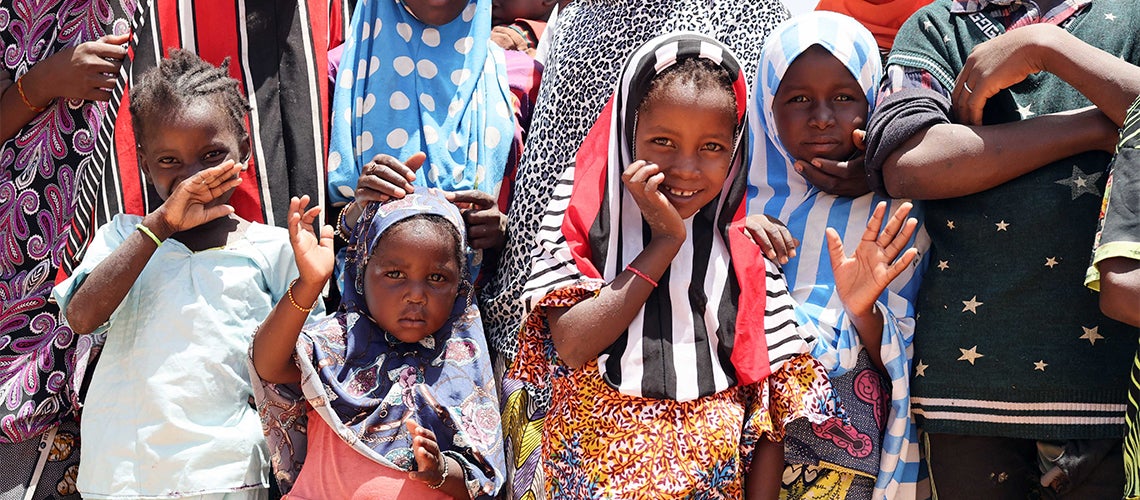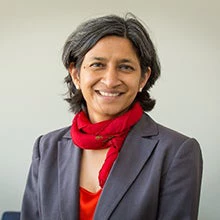 Helping vulnerable citizens and empowering women with an impactful social safety nets program
Helping vulnerable citizens and empowering women with an impactful social safety nets program
Nearly every country around the world is grappling with more than one crisis: the still-simmering pandemic and continued vulnerability to future health emergencies; historic spikes in food insecurity, exacerbated by supply shortages arising from the war in Ukraine; fragility, conflict, and violence; and the steadily rising tide of climate change’s assaults on the environment.
Neutralizing even one of these crises can be confounding and perilous. Some countries, unfortunately, face them all at once, fighting on multiple fronts. That usually keeps them from attending to the longer-term task of giving people the knowledge, skills, access to health care, and opportunities they need to live out their full productive potential. Investing in resilient, shock-responsive systems is critical to protect human-capital gains and improve resilience to future shocks.
Niger is an example of a country that faces many complex and interconnected challenges. Shocks and crises are increasingly frequent and overlapping in Niger, disrupting efforts to sustain broad-based growth, build human capital, and reduce poverty. Regional instability has led to the displacement of families and the closure of schools, threatening social stability and increasing insecurity; that, in turn, complicated Niger’s efforts to respond to the COVID-19 pandemic and worsened the food insecurity that is now affecting more than 4.4 million of the country’s people. Climate shocks have triggered localized flooding, while steady rises in temperatures threaten the more than 80 percent of Niger’s citizens who depend on agriculture for their nourishment and livelihoods.
The government of Niger is determined not to lose any ground in its steady climb to protect and invest in all its citizens by pressing ahead with programs and reforms that are having transformational impact on people’s lives. A great example of this is the Wadata Talaka safety-net program, a partnership between Niger and the World Bank that focuses on poverty reduction, resilience building, and women's empowerment. The program provides monthly cash transfers to extremely poor households to smooth their consumption expenditures and improve their ability to cope with shocks. It also provides “economic inclusion” support—life and micro-entrepreneurship skills training, coaching, and support to village savings groups—and helps poor children get essential mental stimulation in their early years. Such programs can respond quickly to help poor and vulnerable families prepare for, cope with, and adapt to shocks such as the COVID-19 pandemic: As the virus spread, the program expanded to four hundred thousand households to protect them from the pandemic’s adverse economic consequences. The program is well-placed to assist poor households with rising food insecurity and climate shocks.
A successful response will need to include supporting women and innovation. Because women are the primary beneficiaries of Wadata Talaka, the program is an important vehicle for their empowerment. Evaluations of the economic inclusion program show that in the eighteen months since it began, it improved household consumption and food security. The total income of women beneficiaries has increased (by 60 to 100 percent, much of it from non-farm businesses), and there is strong evidence of gains in their mental health and social wellbeing.
To develop such systems reaching the poorest and most vulnerable, countries will need strong social registries and good enrollment, delivery, and payment systems, often leveraging technology. The government of Niger is fully committed to these efforts. For example, responding to climate change, Wadata Talaka was the first program of its kind in West Africa to use satellite data to quickly anticipate drought hotspots and provide emergency funds more quickly than usual (three months ahead of the traditional response) to help people before they entered the lean season. Research is currently underway to measure the impact of that speed.
At a time when countries are forced to contend with the ebb and flow of shocks like climate change, pandemics, conflict, or food price increases, investments in social protection systems are more critical than ever. Niger’s programs serve as an example of just how impactful such adaptive systems can be.
This blog was initially published on Atlantic Council site.



Join the Conversation